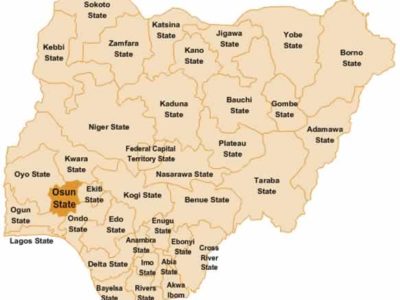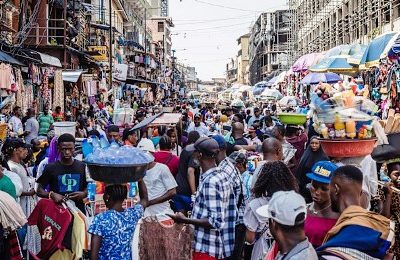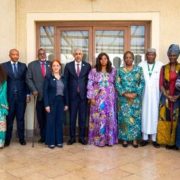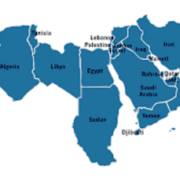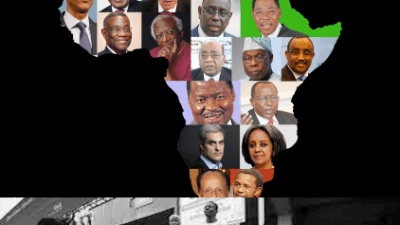At the end of the Rwandan political upheaval just over a decade ago, more than one million people had been massacred. It was a classic case of genocide in recent history reminiscent of the extermination of an estimated six million Jews by Hitler’s NAZI during World War II. But history is cyclical and underscores the continuously ignored lesson that every contrived violence in man’s history has advanced the economic and political profit of only a few self-seeking men.
The ordinary Rwandans that survived the machetes and the thundering guns have returned to their ordinary lives, far from the ‘pomp, glory and conceit’ of power for which their children and parents were murdered in the ‘righteous’ cause of addressing tribal grievances.
“Nigeria’s sluggish walk to nation-state from a forceful amalgamation of clans and ethnic kingdoms has been marked by the even narrower pursuit of its few self-seeking, so-called political leadership, often priding themselves as ethnic champions at their homestead and seeking to also be regarded as national figures in Abuja.”
Often, the struggle for access to state resources among the influential political or economic class is confounded by the varying degrees of religious, racial or tribal differences in the specific territory. When the struggles spill into the streets as bloody warfare among the ordinary people, they are coloured as religious, tribal or racial violence, leaving the real causes untouched because it could undermine the short and long term interests of the influential class who ignited the chaos.
But history, including contemporary history, is also replete with inspiring stories of how the influential class, with a deep sense of vision and responsibility has been able to provide great leadership to carry an otherwise subdued community to look beyond its primordial interest into a greater cause that defines the human person irrespective of colour or creed. Apartheid crashed into the dustbin of history in South Africa because a few inspiring leaders refused to be denigrated by the base desires that negates the greater good of the larger community.
The civil rights leaders in the United States offer a living proof of what visionary leadership can do to address not just racial discrimination but principles and social behaviors that reject the equality of all humans and their rights to peace, opportunity and prosperity. Mahatma Gandhi led a crop of leaders that shaped India’s thinking beyond sectional interest for the greater good of a country under imperial siege.
Thus, history has proven that influential men do at some times rise to promote the common good of the greater community over their own narrower interest. Unfortunately, Nigeria’s sluggish walk to nation-state from a forceful amalgamation of clans and ethnic kingdoms has been marked by the even narrower pursuit of its few self-seeking, so-called political leadership, often priding themselves as ethnic champions at their homestead and seeking to also be regarded as national figures in Abuja.
Thus, in the deeper sense, the control of resource and the ability to have access to that resource among a narrow interest group remain the underlying cause of the Jos crises and most of the crises elsewhere in Nigeria, nay Africa. The series of bloody crises in Kaduna, the upheavals in Kano, the bloodshed in so-called Biafra enclave and the fiery political tides in the Niger Delta that have been hijacked by criminal elements; the murderous rages in the south-west, all have their original causative factors in the bankruptcy of the political class lacking vision and innovative ideas to promote economic prosperity of the community that could serve to secure its nobler interest.
“While Jos was burning, the British government was having final talks with Nigeria’s central government on how to return already traced stolen money that a former civilian governor of Plateau State had hidden in British banks…. Not many can appreciate the link of failed and corrupt leadership to the vanquishing of a hungry and frustrated people in bonfires on the streets …where the ordinary people indulge in the ritual of self-annihilation.”
Imagine a Nelson Mandela confined to see the response to the Apartheid challenge through a narrower exigency of a Xhosa tribal chief. Imagine a Gandhi resolving British imperialism in India through the narrow pursuit of a Hindu agenda. Yet! These are the traps into which many in the gifted membership of Nigerian political class have fallen, including those that have had the benefit of becoming truly national leaders, but who along the way played the ethnic or religious cards to foster divisions among the ordinary folks who look up to them.
The essence has always been to provide the much needed shield for stolen national wealth or to secure the powerbase they have appropriated at the national level through a gathering of the ‘tribe for a share of the national cake’. Of course, what the tribe gets, if it gets anything at all, is trickles. The entire Nigerian landscape is dotted with badly constructed roads, white elephants and abandoned initiatives including scholarship schemes and government funded NGOs under the unconstitutional offices of First Ladies.
In the first place, they were designed as conduits to siphon illegitimate money to secret accounts in European and American banks (the new favourite destinations are banks in Dubai and the rest of Asia). The people’s wealth is locked away in offshore banking vaults. Their mentality is tainted to see the enemy as the other ethnic person who has equally been plundered and denied the opportunity for growth. So while the people fight and die, the corrupt political class shares the booty of an abused nation.
While Jos was burning, the British government was having final talks with Nigeria’s central government on how to return already traced stolen money that a former civilian governor of Plateau State had hidden in British banks. The funds were originally appropriated from the federal purse to develop Plateau State. But they ended up inside the governor’s private bank accounts. Not many can appreciate the link of failed and corrupt leadership to the vanquishing of a hungry and frustrated people in bonfires on the streets of Jos, Kaduna and elsewhere where the ordinary people indulge in the ritual of self-annihilation.
Olusegun, writer and entrepreneur, is Editor @ Baobab.



